Trailblazer Profile: Dr. Michael Elam
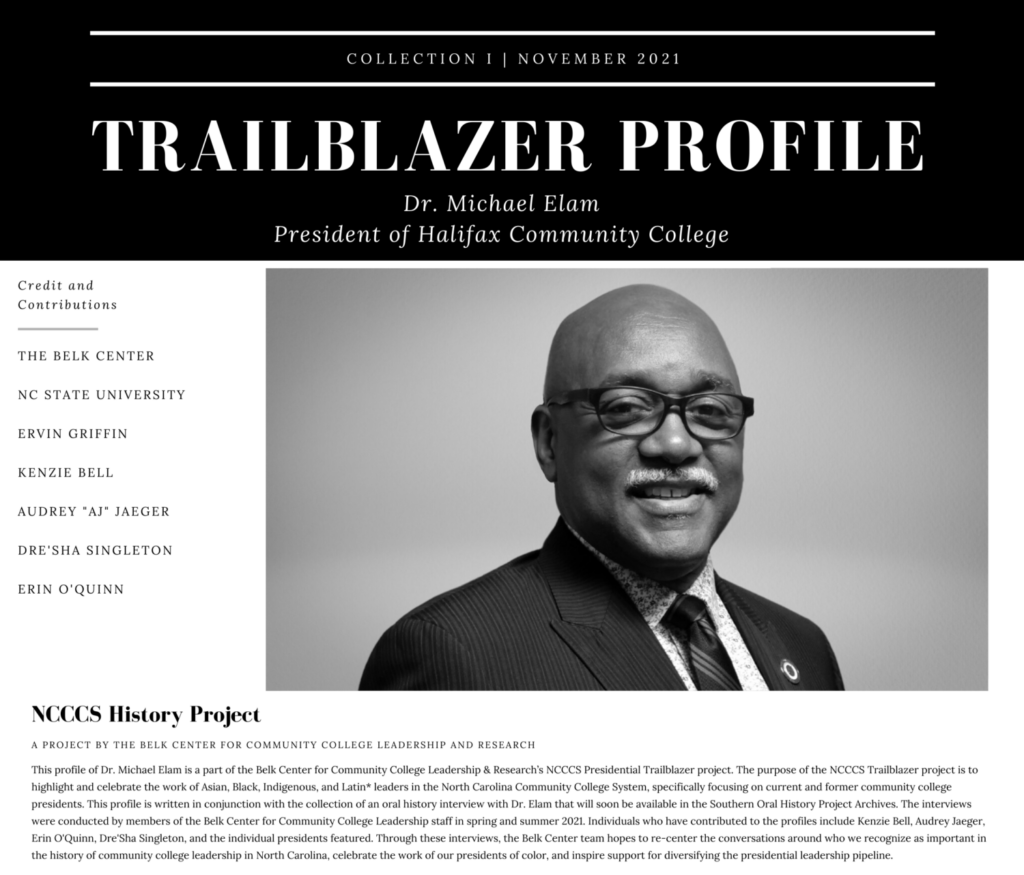
Dr. Michael Elam
To Dr. Michael Elam, president of Halifax Community College, a trailblazer is a person who leads others through places or situations where others have not been. “Trailblazers who are African American are held to a much higher standard than their counterparts,” says Elam. “They must perform with perfection and the utmost integrity to be considered successful. They often find themselves in hostile environments needing courage, unflinching persistence and strength to endure.”
Elam believes that strong trailblazers have “the responsibility to excel at what they do, to be confident with their outcomes and to overcome failures.” Failure, for a trailblazer, he says, is not an option. He knows that failure happens and has occurred in his experiences but a trailblazer does not let it deter him from ultimately achieving his goals. He believes that working hard, dealing with the setbacks as well as learning from the failures that occur along life’s way strengthens him. “I have found that focusing on success and goal achievement is the fuel that compels a trailblazer to create the pathways that those who will follow use to their advantage.”
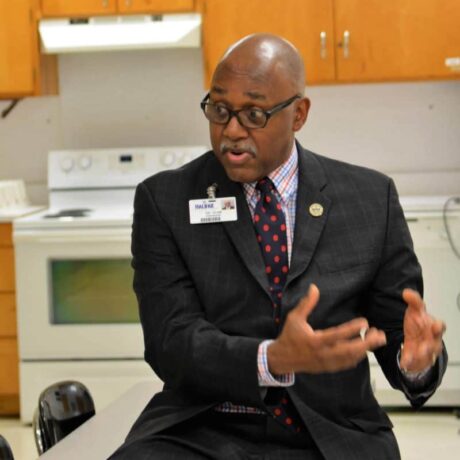
Elam knows first-hand what it is like to blaze a trail and to resist failure. In his first appointment as a community college president in Texas, he was the first African American president in the college’s history. Being the first was difficult and lonely, and he felt the pressure and responsibility to perform with excellence so that those who would come after him would be given fair consideration.
When talking about his hopes for the next generation of community college leaders of color, Elam says, “I think a much larger effort should be made to create a platform that would offer people of color opportunities to come together amongst themselves to share their experiences in those leadership roles. The participants can learn directly from leaders who have had years of experience in those roles. The exchange and interactions between those experienced presidents is invaluable and will equip aspiring young leaders with the ability to develop proactive strategies to survive, cope and thrive in their own arenas.”
Elam, like many of those who are trailblazers in the community college system, did not expect at the outset of his career that his calling would be to community college leadership. While he is originally from northeastern North Carolina, he primarily grew up in Philadelphia, Pa. He holds a bachelor of science degree in zoology and a master of education degree in student personnel administration from Howard University, and an Ed.D. in higher educational leadership from Nova Southeastern University. Elam began his career in higher education administration at the university level before transitioning to community colleges. On his switch to focusing on community colleges, Elam says, “I saw the light. I determined from within that the community college mission was closer [than four-year colleges] to what I would call my missionary spirit. It helped me to really focus on implementing policy based on the needs of the surrounding community…and in my belief in servant leadership. I am able to see people’s lives change quickly.”
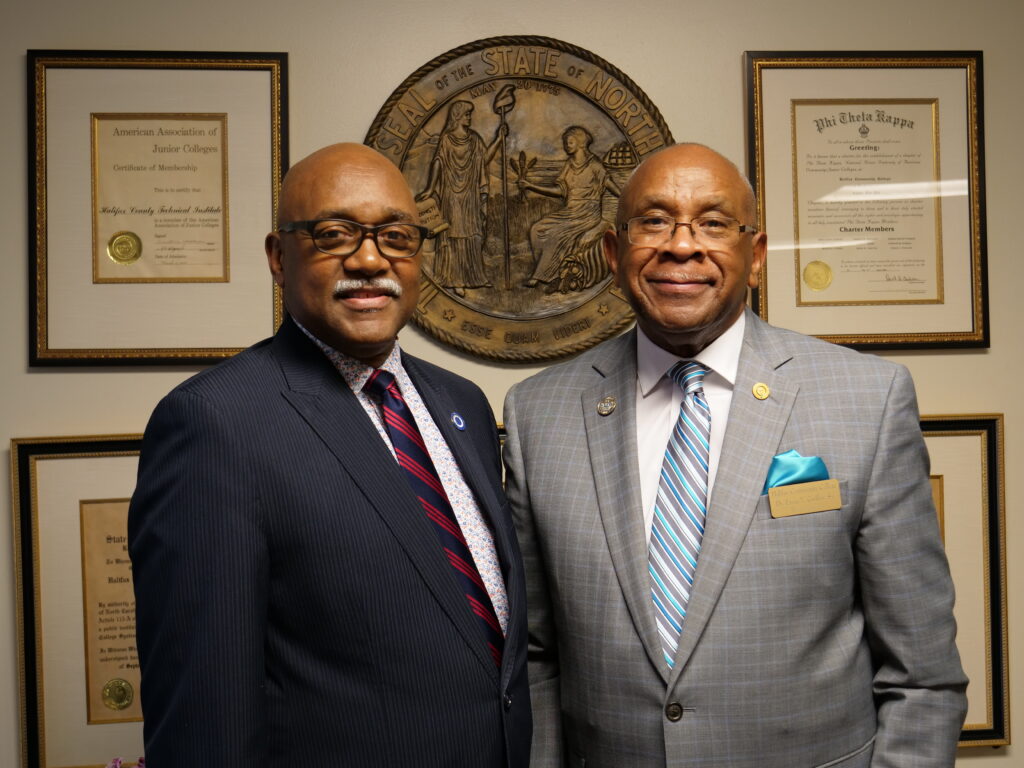
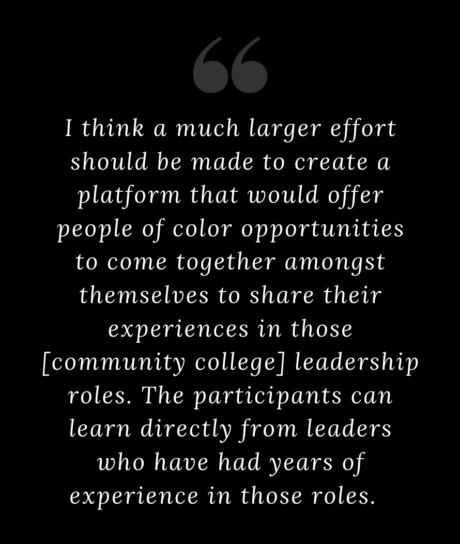
He pursued a doctorate in higher education leadership after a mentor, Dr. D. Kent Sharples, encouraged him to become a community college president. Elam says that before Dr. Sharples encouraged him, community college leadership seemed like, “a position for everybody else but me. It wasn’t something I aspired to.” Despite his initial hesitancy, Sharples’ words helped him to see himself in the role of president, yet he knew just seeing himself as capable of being a president was not enough. “As a result of that conversation, I also knew that it was a call for preparation. People of color usually are held to a much higher standard than our counterparts, so I thought the possibility of my being a president without a doctorate degree was very unlikely.” So, he decided to leave two small children home with his wife on weekends, continue to work full-time and complete his doctorate.
Elam’s first appointment as a community college president was at College of the Mainland (COM) in Texas City, Texas, where he was the first African American president in the college’s history. After his role at COM, he lived in Baton Rouge, La., where he served as the vice president for strategic initiatives for the Louisiana Community & Technical College System. He also served as an interim chancellor for both Sowela Technical Community College and Central Louisiana Technical Community College.
While Elam was the first African American president of his college in Texas, as well as the first African American in several other leadership roles he has held, he was not the first African American president of either of the two institutions he has helmed in North Carolina – a unique experience for a Black community college president. At Roanoke-Chowan Community College he was preceded by Dr. Harold E. Mitchell, Dr. Mary C. Wyatt and Dr. Ralph G. Soney. At Halifax Community College he was preceded by Dr. Ervin V. Griffin, Sr. Roanoke-Chowan and Halifax, which both serve predominantly Black communities, have had the distinction of more than one president of color in the history of the N.C. Community College system. Elam says this has occurred in large part because “the leadership in these towns in northeast North Carolina are predominantly African American, so it follows that the leadership doing the hiring would consider African American applicants as viable candidates for this role.”
He believes that having African American leadership at colleges that serve a large population of African American students matters. While many other community colleges in the system are just beginning to recognize the importance of an institution reflecting the demographics of the communities they serve, Halifax Community College has recognized this fact for many years. For instance, the college has hosted an annual luncheon, Saluting Local African American Heroes, for the past 15 years.
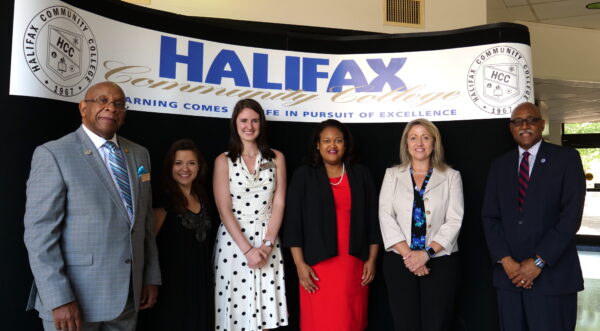
“Justice across the community college system is having the resources allocated where they are most needed, and not based on politics,” he says. “Resources should be directed in a manner that would strengthen the entire state because we’re only as strong as our weakest link. When we continue to deny the resources to the weaker areas of our state, then we keep our state weak because we have not strengthened the areas that need it the most.”
While the work of pursuing educational equity and justice in the community college system is difficult, Elam knows it is the work he loves to do. “Being the president does have some perks, however, the presidency comes with a tremendous amount of responsibility. I wanted to be a president to see my vision become a reality and to change the lives of the people I serve.”
Collection I | November 2021